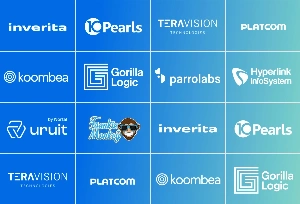A lot of businesses and startups have found the key to their success in outsourcing. Talented software development team is a game changer when it comes to reducing costs without compromising on quality. In fact, more and more companies make major blunders concerning staff augmentation.
Here are 5 mistakes you should avoid when choosing IT staff augmentation services in Ukraine.
#1 Not knowing company’s organizational culture
Choosing a Ukrainian company that offers team augmentation services is like standing in front of the huge shelf offering the same product but of different brands. If you pick up a random product you may end up being disappointed. It’s all the same with staff augmentation. Not knowing enough about a company culture will leave you uncertain about their ability to attract the right talent for you.
The company pours into its culture if it provides growth opportunities for their employees, cares about them, encourages all kinds of educational initiatives, provides great compensation and has a mentorship program. If you want to check this out, visit DOU, IT specialists community, where you’ll find more information about corporate culture of the Ukrainian companies.
#2 Choosing the wrong cooperation model
Many companies rush in and choose a fixed price approach, because it looks like the most simple one. It doesn’t require overpayments, has no financial risks and seems to be the safest way to go. However, it’s not all roses.
According to McKinsey research on average, large IT projects run 45% over budget and 7% over time, which makes it wise to think twice whether you will be able to cover the uncertainties that may cost you 50% more of the budget you decided to go with.
It’s crucial to set up collaboration with a partner who has different cooperation models to offer. Before you make up your mind, analyze your project. If it’s small and has clearly defined requirements, the fixed price model can work for you. Time and Material is a great option if you don’t know exactly how long your project development will take. One of the best approaches is choosing a dedicated development team model. In this case, you are going to have a team of required specialists working solely on your project with a possibility to add developers with other skills and adapt the process to any changes. The last two approaches are great options for medium and large projects.
#3 Thinking that you don’t need a project manager
“Don’t underestimate the communication process with your business partner” sounds like a no-brainer. However, so many startups forget who is responsible for the communication process between a team of developers and a client. Besides checking up the progress and creating tasks for a team, a project manager is responsible for translating the business language of a client into the technical language of developers.
Appropriate communication is an anchor for your project allowing your project to be safe at harbour. Don’t neglect hiring a project manager, it will pay you back.
#4 Providing unclear documentation
It’s totally fine if initially your project idea is vague. Most of us find it difficult to provide clear requirements at the very beginning. The wise thing to do is to ask a company to run a discovery phase for your project or push you through the process with the right questions. The experienced software development team will definitely offer you this type of service and save your time and money at the last stages of the project development.
#5 Overseeing the process of the knowledge transfer
If the project knowledge is not properly shared across software development teams, your company can undergo significant loss. The ideal software development partner provides regular information exchange between the teams, set ups and aligns workflows via knowledge sharings, documentation, meetings and training.
#6 Lack of research
What catches your eye when you look through the websites of Ukrainian IT companies? What factors do you think are going to influence your decision? Most startups pay their attention to the prices and cost-efficiency. Although this criteria plays an important role, it’s not the only one. What about expertise, feedback and most importantly — reviews? Clutch is one of the best platforms including all the necessary information along with portfolio, client testimonials and video reviews. We wouldn’t suggest you to cooperate with a company not listed on B2B platforms, as it might be a sign that a team is inexperienced.
Summing up: choose trusted IT vendor
If you want to avoid these mistakes, choose a company willing to negotiate each of the aspects mentioned above. Make a thorough research to know the company's brand and culture, analyze their competence regarding cooperation models and readiness to be in constant communication with you. Expertise is seen through the details like the attitude towards the project, the ability to handle first meet-ups and guide a client step by step with complete transparency. Good luck with your choice!






